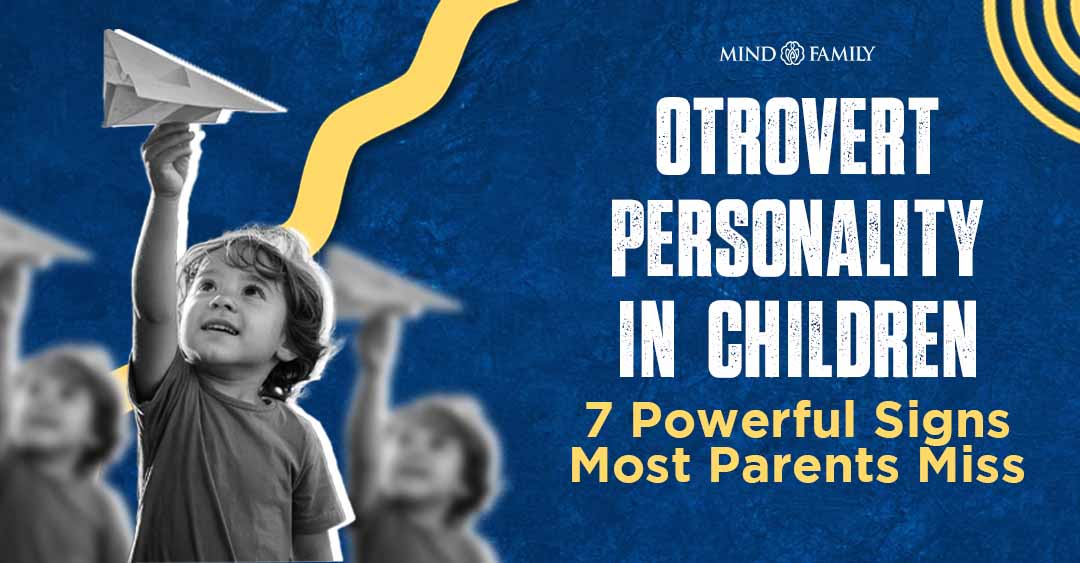Parenting has always been a changing landscape. The rise and fall of different parenting styles has always been a cornerstone of our society. Despite this, I have noticed certain myths of traditional parenting approaches have remained a topic for debate, especially those of authoritarian nature.
Dr. Ross Greene, who studies kids with behavior issues, has shown that traditional parenting isn’t always the best way to help them. Instead, he suggests being more understanding and working together with kids. And emphasizes more on the modern styles of parenting.
In this article, we will be debunking the myths of traditional parenting. We’re going to talk about why it’s important to think differently about how we raise kids while providing alternative approaches.
The purpose of this article is not to discredit traditional parenting in its entirety but to explore and challenge some of the widely held beliefs that have defined it for so long.
Breaking Down The Traditional Parenting Style
Traditional parenting is all about rules, respect, and passing on traditions. In traditional families, parents are like leaders who make the rules, and kids follow them. This helps keep things calm and organized at home.
The underlying belief is that strict discipline will teach children self-control and respect for authority (qualities that are highly valued in many societies). These beliefs have resulted in the development of several myths of traditional parenting.
However, these traditional approaches are now being complemented by modern perspectives on child development. Experts, such as Dr. Ross Greene, are at the forefront of this shift. Dr. Greene emphasizes the importance of understanding children’s behavior through empathy and collaborative problem-solving.
His work suggests that children do well if they can, advocating for support in developing the skills they need to behave appropriately. This perspective contrasts with the more punitive measures often associated with traditional parenting. Leading us to look deeper into the common myths of this parenting style.
Read More: Explore Different Types Of Parenting Styles And It’s Impact On Children
Debunking the Myths of Traditional Parenting
Debunking the myths of traditional parenting involves a critical examination of long-held beliefs that have defined child-rearing practices for generations. As we delve into these myths, it’s crucial to approach them with an open mind and a willingness to consider the evolving landscape of child psychology and family dynamics.
Dr. Ross Greene, renowned for his work on Collaborative & Proactive Solutions (CPS), provides a valuable perspective in challenging these traditional narratives. Below are some of the common myths of traditional parenting.
Myth 1: Strict Discipline Ensures Respect and Obedience
“Traditional parenting equates strict discipline with the development of respect and obedience in children, often resorting to punitive measures for misbehavior.”
Dr. Greene’s work suggests that children’s challenging behaviors often stem from unmet needs or undeveloped skills rather than willful disobedience. Punitive discipline can lead to resentment and a breakdown in the parent-child relationship, rather than mutual respect.
Adopt a problem-solving stance, as recommended by Dr. Greene. Engage in collaborative discussions with your child to understand the root causes of their behavior. Empower them by involving them in finding solutions, which can build their problem-solving skills and promote a sense of responsibility.
Myth 2: Emotional Vulnerability is a Weakness
“In traditional parenting, expressing emotions, particularly those considered negative, is often seen as a sign of weakness.”
Dr. Greene emphasizes the importance of emotional expression for healthy development. Children who are encouraged to express their emotions learn better emotional regulation and develop stronger resilience.
Create an emotionally safe environment where children feel comfortable sharing their feelings. Use empathetic listening and validate their emotions, showing them that all feelings are acceptable and teaching them healthy ways to cope.
Read More: Building Emotional Competence In Children: How To Encourage
Myth 3: Parental Authority is Unquestionable
“Traditional parenting insists on absolute parental authority, with little tolerance for questioning or dissent from children.”
The CPS model posits that a collaborative relationship between parents and children, where children are encouraged to voice their opinions and participate in decision-making, fosters respect and understanding on both sides.
Encourage open dialogue in your family. Respect your child’s perspective and involve them in problem-solving. This teaches them respect for authority while also valuing their autonomy and opinion.
Myth 4: One-Size-Fits-All Parenting
“Traditional parenting often applies the same rules and approaches to every child, ignoring individual differences.”
Dr. Greene highlights the importance of understanding each child’s unique needs, preferences, and challenges. Recognizing and adapting to these differences can lead to more effective and compassionate parenting.
Observe and learn about your child’s temperament, interests, and learning styles. Tailor your parenting approach to fit their unique needs, which can lead to better outcomes and a stronger parent-child relationship.
Research shows that developing an adaptive parenting style can significantly benefit both children and parents. Adaptive parenting involves adjusting your parenting strategies based on your child’s needs, the situation at hand, and the desired outcomes.
Myth 5: Success is Defined Solely by Academic and Professional Achievements
“Traditional parenting views academic and professional achievements as the primary measures of success.”
Experts advocate for a broader definition of success that includes emotional intelligence, problem-solving skills, and empathy. These skills are crucial for navigating life’s challenges and building meaningful relationships.
Encourage and celebrate a wide range of achievements in your child’s life, not just academic or professional ones. Support their interests and passions, and recognize their efforts in developing social-emotional skills and personal growth.
Read More: 10 Tips On Addressing Academic Stress In Children
Myth 6: Children Should Always Be Happy
“A pervasive myth in traditional parenting is the idea that good parenting is measured by a child’s constant happiness.”
One of the myths of traditional parenting styles is that parents should encourage ‘toughness’ in children. They don’t consider the range of emotions that a child may experience instead focusing that children should always be ‘happy.’
Experiencing a range of emotions, including frustration, sadness, and disappointment, is crucial for children’s emotional growth.
According to Dr. Green this ‘snowplow parenting style’ prevents the holistic development of your child. Shielding them from negative experiences or emotions can hinder their ability to cope with life’s challenges.
Acknowledge and validate all of your child’s emotions, teaching them that it’s okay to feel upset or sad at times. Equip them with strategies to manage and learn from these emotions, fostering resilience and emotional intelligence.
Myth 7: Reward and Punishment are the Best Motivators
“Traditional parenting often relies heavily on rewards and punishments to motivate children’s behavior, following a carrot-and-stick approach.”
One of the myths of traditional parenting is that external motivations and punishments are the guiding hand for the development of children.
External motivators like rewards and punishments can undermine internal motivation over time This makes children dependent on external validation rather than developing their sense of achievement and satisfaction.
Research shows us that when children are frequently rewarded or punished, they may start to perform actions solely for the reward or to avoid punishment, rather than understanding the intrinsic value of the behavior itself.
This dependency on external factors for motivation can hinder the development of their internal sense of achievement and satisfaction.
Focus on intrinsic motivation by encouraging internal rewards such as the joy of learning, personal growth, and the satisfaction of overcoming challenges. Help children set personal goals and celebrate their efforts and progress, regardless of the outcome.
Myth 8: High Expectations Guarantee High Achievement
“There’s a common assumption that setting high expectations for children will naturally lead to high levels of achievement and success.”
While high expectations can motivate some children, they can also lead to anxiety, decreased self-esteem, and a fear of failure in others, especially if these expectations are unrealistic or not aligned with the child’s abilities and interests.
Set realistic and individualized expectations that consider each child’s strengths, weaknesses, and passions. Encourage effort and perseverance over perfection, fostering a growth mindset that values learning and improvement.
Myth 9: Parenting Should Focus Solely on the Child
“Traditional parenting often centers exclusively on the child’s needs, with little consideration for the parent’s well-being.”
Parental well-being is crucial for effective parenting. Overwhelmed, stressed, or unhappy parents are less able to provide the supportive and nurturing environment children need to thrive.
Prioritize self-care and personal well-being as part of your parenting strategy. A well-balanced parent is more capable of offering patience, empathy, and support, modeling healthy coping strategies for their children.
Myth 10: More Activities Mean Better Development
“The myth that children must be constantly engaged in structured activities to foster their development is prevalent in traditional parenting.”
Over-scheduling can lead to stress and burnout for both children and parents, reducing opportunities for creative play, family time, and relaxation, all of which are important for healthy development.
Strike a balance between structured activities and free time. Encourage unstructured play and downtime, which are essential for creativity, problem-solving, and the development of independent interests.
Debunking these common myths of traditional parenting is crucial. By doing so as suggested by Dr. Ross Greene, parents can create a more supportive, understanding, and nurturing environment for their children.
This approach not only tackles the immediate challenges of parenting but also establishes the foundation for raising well-rounded, resilient, and emotionally intelligent individuals.
Read More: 5 Key Indicators of Children’s Mental Health Issues You Need To Be Aware Of!
A Word From Mind Family
As parents, navigating the complexities of raising children can sometimes feel overwhelming. It’s crucial to recognize that parenting is not a one-size-fits-all endeavor. Each child is unique, with their own set of needs, strengths, and challenges.
By embracing a more holistic and compassionate approach, we can create a nurturing environment where our children can thrive emotionally, socially, and intellectually.
Debunking the myths of traditional parenting isn’t about discrediting traditional parenting entirely. Instead, it’s about encouraging parents to think critically, adapt to new insights, and prioritize the well-being of their children.
Parenting isn’t the same for everyone. Every kid is different, so it’s essential to be flexible and kind. By listening to our kids and learning along the way, we can help them grow up to be happy and confident.
Remember, being a parent isn’t about being perfect. It’s about trying our best and loving our kids no matter what.
Frequently Asked Questions (FAQs)
1. What are traditional parenting styles?
Traditional parenting styles emphasize rules, respect, and passing on traditions. Parents often take on a leadership role, setting rules for their children to follow, aiming to maintain order and structure at home.
2. What is the difference between traditional and modern parenting styles?
Traditional parenting relies on strict discipline and obedience, while modern parenting incorporates empathy, collaboration, and understanding. Modern approaches prioritize emotional intelligence and adaptability, fostering a deeper connection between parents and children.
3. What are some common myths of traditional parenting?
Some common myths include the belief that strict discipline ensures respect and obedience, that emotional vulnerability is a weakness, and that parenting should solely focus on the child’s needs. These myths often overlook the importance of empathy, individualized approaches, and parental well-being in effective parenting.












Leave a Reply